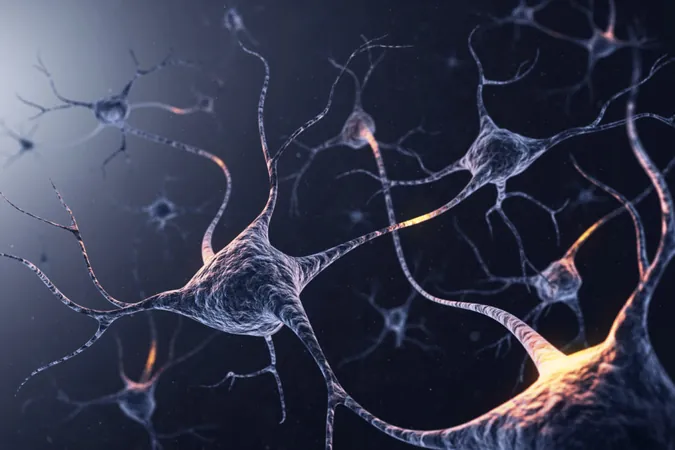
Unlocking the Mystery of Aphantasia: How Your Brain Processes Images Without Visualization
2025-06-06
Author: Yu
Researchers at the Paris Brain Institute, utilizing groundbreaking 7T fMRI technology, are diving deep into the enigmatic world of visual imagery. This cutting-edge study, recently published in Cortex, may illuminate why some individuals can conjure vivid images in their minds while others cannot.
What is Aphantasia?
Aphantasia is a rare cognitive condition affecting about 4% of people, rendering them incapable of visualizing scenes or objects mentally. While some can navigate through memories of bustling city streets as if watching a film, those with aphantasia struggle to even picture the face of a loved one.
An Intriguing Inheritance?
Interestingly, aphantasia appears to be hereditary, often found within families. Though not classified as a disorder, it correlates with weaker autobiographical memories and facial recognition challenges, sometimes overlapping with autism spectrum disorders. Yet the reasons behind these associations remain largely unexplained.
High-Resolution Insights into the Brain
To delve into the brain's mechanisms behind this phenomenon, Paolo Bartolomeo, a leader in the study, emphasized the need for advanced technology. "We utilized 7-Tesla fMRI to scrutinize brain activity with unmatched clarity," he stated.
Breaking New Ground in Understanding Mental Imagery
Where previous studies used subjective assessments of visualization skills, this pioneering research aimed for a more objective approach. Researchers, including postdoctoral fellow Jianghao Liu, analyzed 20 participants—10 with aphantasia and 10 with standard visual imagery skills—during a series of memory tasks.
The Brain's Hidden Connections
Findings revealed that even individuals with aphantasia exhibited activation in key brain areas associated with visual processing, albeit with reduced connectivity. This suggests that while they possess knowledge of visual details—like knowing spinach is darker than lettuce—they experience a disconnect in the mental imagery process.
Implications for Creativity and Cognition
This research not only highlights the profound differences in how we visualize the world but also challenges the notion that mental imagery is essential for reasoning and creativity. As further studies unfold, they might provide insights into various forms of aphantasia and its relationship with memory, perception, and neurodevelopment.
In essence, understanding aphantasia could reshape our comprehension of human cognition and creativity, demonstrating the remarkable diversity of human experience.




 Brasil (PT)
Brasil (PT)
 Canada (EN)
Canada (EN)
 Chile (ES)
Chile (ES)
 Česko (CS)
Česko (CS)
 대한민국 (KO)
대한민국 (KO)
 España (ES)
España (ES)
 France (FR)
France (FR)
 Hong Kong (EN)
Hong Kong (EN)
 Italia (IT)
Italia (IT)
 日本 (JA)
日本 (JA)
 Magyarország (HU)
Magyarország (HU)
 Norge (NO)
Norge (NO)
 Polska (PL)
Polska (PL)
 Schweiz (DE)
Schweiz (DE)
 Singapore (EN)
Singapore (EN)
 Sverige (SV)
Sverige (SV)
 Suomi (FI)
Suomi (FI)
 Türkiye (TR)
Türkiye (TR)
 الإمارات العربية المتحدة (AR)
الإمارات العربية المتحدة (AR)